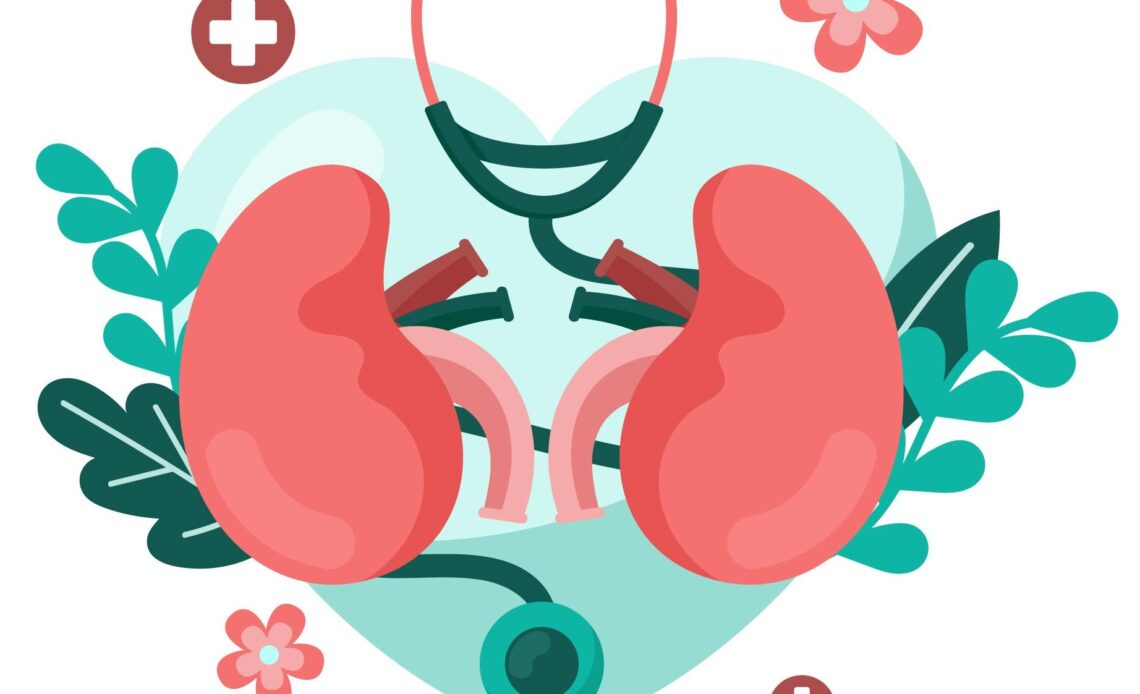Did you know that heart disease and kidney disease are more interconnected than you might realize? These two conditions often coexist, and understanding the relationship between them is vital for overall health.
Understanding the link between heart disease and kidney disease
Heart disease, encompassing conditions like coronary artery disease and congestive heart failure, and kidney disease, known as chronic kidney disease, share several common risk factors such as high blood pressure, diabetes, and obesity. Research indicates that individuals with heart disease have a higher likelihood of developing kidney disease, and vice versa.
The connection between heart disease and kidney disease is primarily attributed to the impact of impaired blood flow and high blood pressure on the kidneys. Both conditions can give rise to a myriad of complications, further complicating the management of the other ailment. The intricate interplay between the heart and kidneys underscores the importance of holistic healthcare approaches.

It is crucial to recognize the correlation between heart and kidney health and take proactive steps to prevent or manage both conditions. Embracing a heart-healthy and kidney-friendly lifestyle involving regular physical activity, a well-rounded diet, and meticulous medication adherence can mitigate risks and enhance control over these potentially debilitating diseases.
Common risk factors for heart disease and kidney disease
High blood pressure, diabetes, and obesity are prevalent risk factors for both heart disease and kidney disease. These conditions often coexist, creating a complex web of health concerns that necessitate comprehensive management strategies. Addressing these risk factors through lifestyle modifications and medical interventions is crucial for mitigating the progression of heart and kidney diseases.
Furthermore, smoking, a sedentary lifestyle, and poor dietary habits can exacerbate the risk of developing heart and kidney issues. By prioritizing preventive measures such as smoking cessation, regular exercise, and a balanced diet rich in fruits, vegetables, and whole grains, individuals can significantly reduce their susceptibility to these chronic conditions.
Genetic predispositions also play a role in the development of heart and kidney diseases. Understanding one’s family history and undergoing regular health screenings can aid in early detection and intervention, potentially averting the onset or progression of these interconnected ailments.
How heart disease affects kidney function

Heart disease can adversely impact kidney function through various mechanisms. The reduced blood flow and oxygen delivery to the kidneys resulting from heart-related issues can impair their ability to filter waste products and regulate fluid balance effectively. Consequently, kidney function may decline, leading to the accumulation of toxins in the body and the development of complications.
Moreover, conditions like congestive heart failure can cause fluid retention, further straining the kidneys and compromising their filtration capacity. The intricate relationship between the heart and kidneys underscores the importance of holistic healthcare approaches that address the interconnected nature of these vital organs.
Managing heart disease effectively through medications, lifestyle changes, and interventions like angioplasty or bypass surgery can help alleviate the burden on the kidneys and preserve their function. By optimizing heart health, individuals can safeguard their kidney function and reduce the risk of developing or exacerbating kidney disease.
How kidney disease impacts heart health
Chronic kidney disease can exert profound effects on heart health, contributing to the development of cardiovascular complications. The impaired kidney function associated with kidney disease can lead to electrolyte imbalances, fluid retention, and the accumulation of toxins in the bloodstream, all of which can strain the heart and increase the risk of conditions like hypertension and heart failure.
Additionally, kidney disease is linked to systemic inflammation and oxidative stress, both of which are implicated in the pathogenesis of heart disease. The bidirectional relationship between kidney disease and heart health necessitates a comprehensive approach to management that addresses the unique challenges posed by these intertwined conditions.

Individuals with kidney disease should undergo regular cardiac evaluations to monitor their heart health and detect any early signs of cardiovascular issues. By proactively managing both heart and kidney health, patients can improve their overall quality of life and reduce the risk of complications associated with these chronic conditions.
Diagnosing and treating heart disease and kidney disease together
The diagnosis and treatment of heart disease and kidney disease together require a multidisciplinary approach that considers the complex interplay between these two organ systems. Healthcare providers may utilize a combination of imaging tests, blood work, and urine analysis to assess heart and kidney function and identify any underlying abnormalities.
In cases where both heart and kidney diseases are present, treatment strategies must be tailored to address the unique needs of the individual. Doctors may prescribe medications to manage blood pressure, control cholesterol levels, and regulate fluid balance to optimize cardiovascular and renal health.
Furthermore, lifestyle modifications such as dietary changes, weight management, and regular exercise are essential components of a comprehensive treatment plan for individuals with both heart and kidney diseases. By adopting a proactive and holistic approach to care, patients can better manage their conditions and improve their long-term outcomes.
Lifestyle changes to prevent and manage heart and kidney disease
Adopting lifestyle modifications is key to preventing and managing heart and kidney disease. Regular physical activity not only strengthens the heart and improves cardiovascular health but also benefits kidney function by enhancing blood flow and reducing the risk of complications.
A balanced diet rich in fruits, vegetables, whole grains, and lean proteins can help control blood pressure, cholesterol levels, and blood sugar, thereby reducing the burden on both the heart and kidneys. Limiting the intake of sodium, saturated fats, and processed foods is essential for maintaining optimal cardiovascular and renal health.

Smoking cessation is another critical lifestyle change that can significantly reduce the risk of heart and kidney disease. Smoking damages blood vessels, raises blood pressure, and accelerates the progression of atherosclerosis, all of which can contribute to the development of cardiovascular and renal complications.
Medications and therapies for dual management of heart and kidney disease
Managing heart and kidney diseases concurrently often involves the use of medications and therapies that target both conditions. Medications like ACE inhibitors and ARBs are commonly prescribed to individuals with heart and kidney issues due to their beneficial effects on blood pressure and kidney function.
Diuretics may also be used to reduce fluid retention in individuals with heart failure and kidney disease. These medications help alleviate symptoms like edema and shortness of breath, improving both cardiac and renal function in the process.
In cases where more advanced treatments are necessary, procedures like angioplasty, stent placement, or dialysis may be recommended to address the specific needs of patients with complex heart and kidney conditions. The goal of dual management is to optimize outcomes and enhance quality of life for individuals facing the challenges of concurrent heart and kidney diseases.
Importance of regular check-ups and monitoring for individuals with both conditions
Regular check-ups and monitoring are essential for individuals living with both heart and kidney diseases. Routine visits to healthcare providers allow for the timely detection of any changes in cardiovascular or renal function, enabling early intervention and treatment adjustments as needed.

Monitoring blood pressure, blood sugar levels, kidney function tests, and cardiac markers can provide valuable insights into the progression of heart and kidney diseases. By staying vigilant and proactive about their health, individuals can better manage their conditions and reduce the risk of complications associated with these chronic illnesses.
Collaboration between cardiologists, nephrologists, and other healthcare professionals is key to ensuring comprehensive care for individuals with both heart and kidney diseases. By fostering open communication and coordination among the care team, patients can receive integrated and personalized care that addresses the unique challenges posed by these interconnected conditions.
Conclusion
In conclusion, the relationship between heart disease and kidney disease underscores the importance of comprehensive care that addresses the interconnected nature of these conditions. By understanding the common risk factors, mechanisms of disease progression, and treatment strategies for heart and kidney diseases, individuals can take proactive steps to safeguard their health and well-being.
Early detection through regular screenings and check-ups, coupled with lifestyle modifications and medication management, is paramount in preventing the onset or progression of heart and kidney diseases. By adopting a holistic approach to care that considers the unique needs of individuals with both conditions, healthcare providers can optimize outcomes and improve quality of life for patients facing the challenges of concurrent heart and kidney diseases.
The link between heart and kidney health serves as a poignant reminder of the importance of prioritizing preventive measures and early intervention in managing these chronic conditions. By working collaboratively with healthcare professionals and embracing a proactive approach to health maintenance, individuals can empower themselves to lead healthier lives and reduce the burden of heart and kidney diseases.


